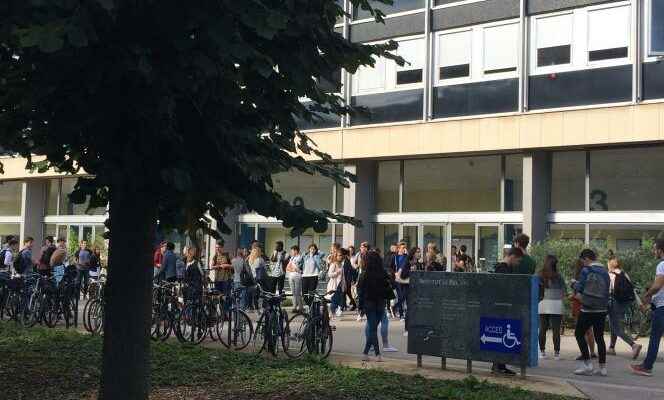This is a new unexpected consequence of soaring energy prices: the University of Strasbourg will close its doors for two more weeks this winter, announced Monday, September 19, the presidency of the establishment, a choice denounced by trade unions.
“A third week of Christmas holidays in early January and a full week of distance learning in February” will be put in place, detailed Michel Deneken, the president of the university, in a video addressed to the students and published on YouTube.
The start of the 2023 school year, scheduled for January 3, should therefore finally take place on January 9, after a week of administrative closure, without any teaching being provided. Among other economy measures, the heating, set at 19 degrees, will be switched on ” as late as possible “ and a communication campaign will be deployed “in favor of eco-gestures for a more sustainable planet”also asserted Mr. Deneken.
“The cost of energy (…) flies away more and more every day”further argued the president of the University of Strasbourg, recalling that the establishment should “taking part in the ecological transition”. “Following government announcements, we have looked for ways to reduce our energy consumption by 10% while preserving the operation of your university as much as possible”tried to justify Michel Deneken.
“Enforced telework”
The university, which had nearly 57,000 students in 2020-2021, is seeing its energy bill explode. Its expenditure on electricity, gas and heating on the network fell from 10 million euros in 2021 to 13 million euros in 2022, after an amending budget granted an extension of 1.5 million euros. additional. For 2023, 20 million have been included in the provisional budget.

Also listen Energy: how will France spend the winter?
“Administrative closures constitute a breach of the principle of continuity of public service”, denounced in a press release the Unitary Trade Union Federation (FSU). Research activities could, according to her, suffer from these measures, with less access to laboratories. The FSU believes that these measures amount to a “compulsory telework” for some staff, and will lead to burdening employees “heating and electricity costs which should be borne by the employer”.
